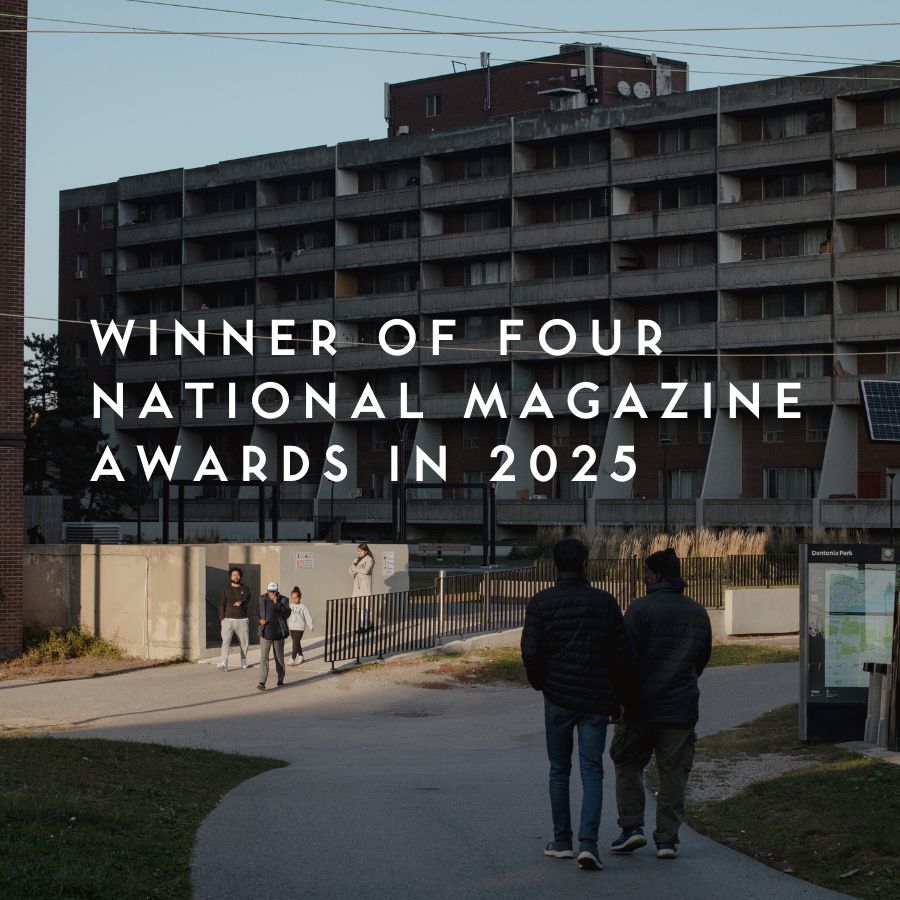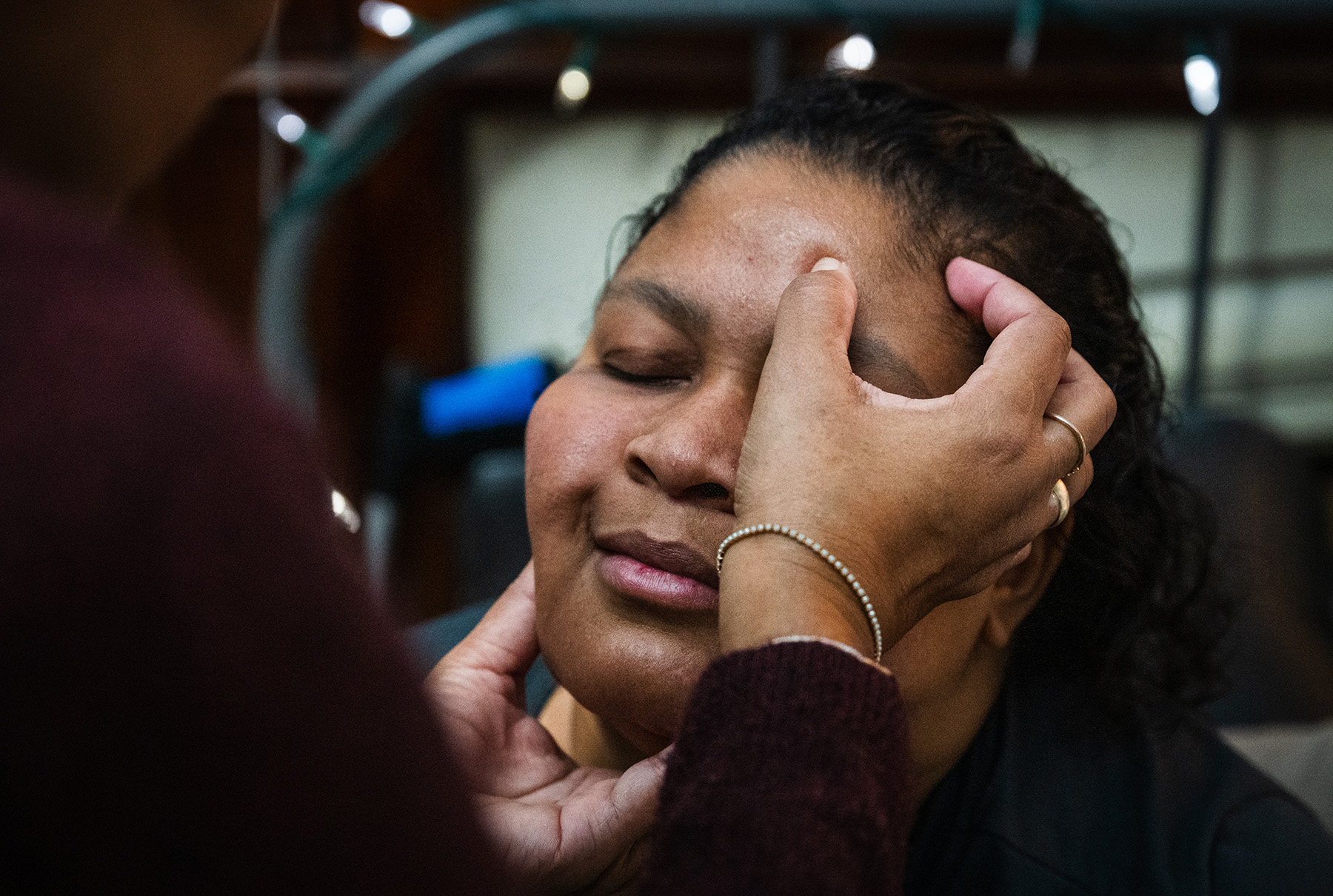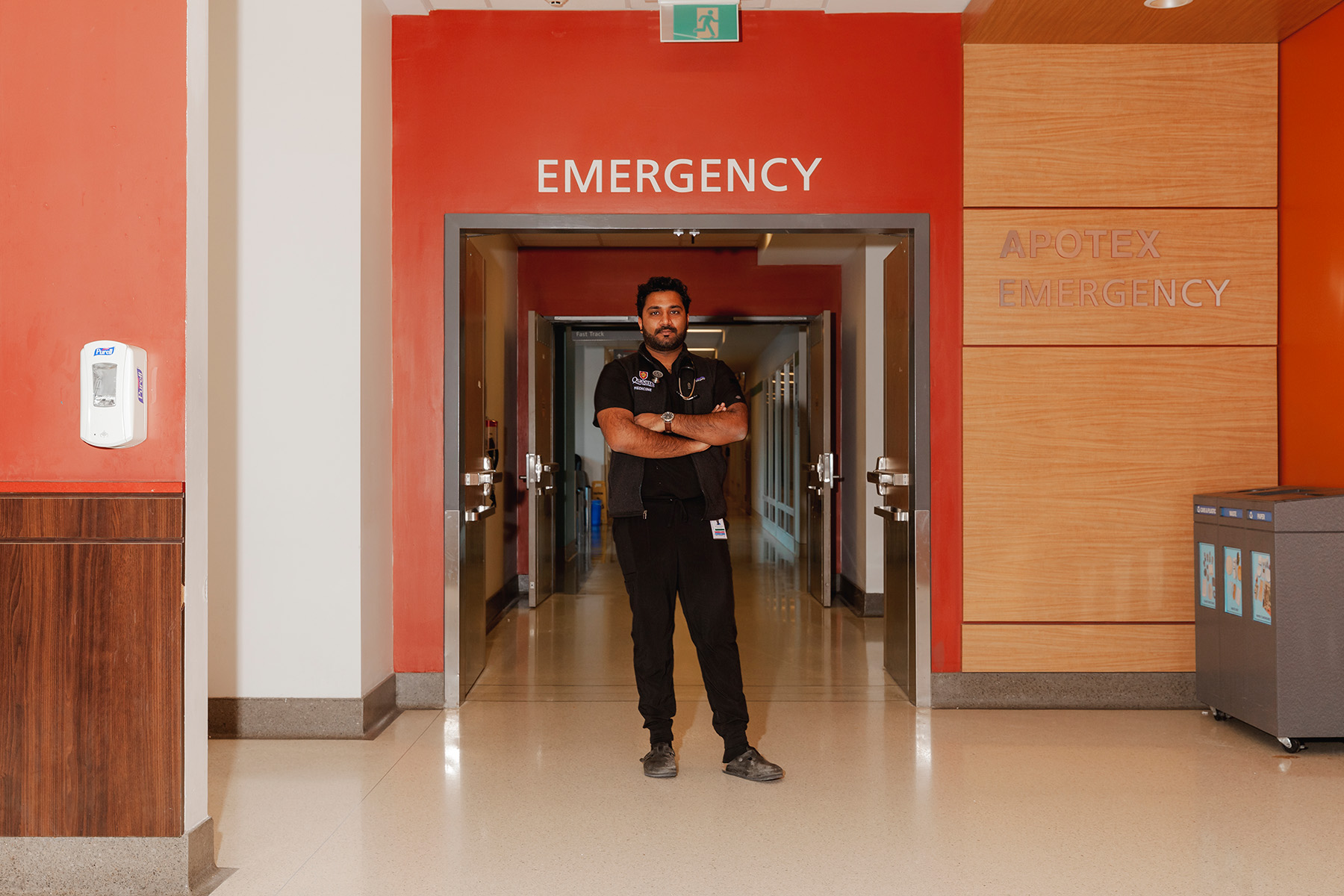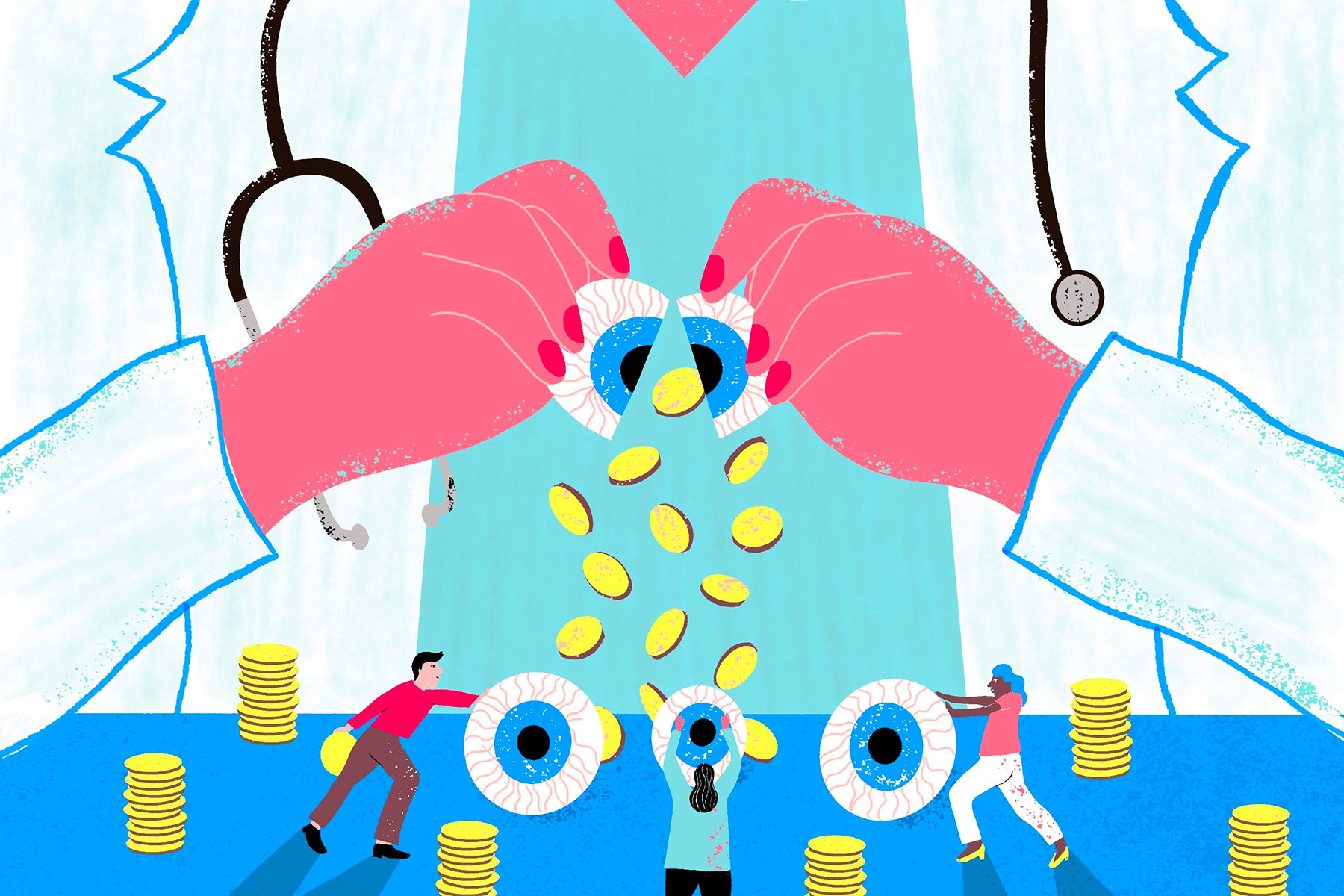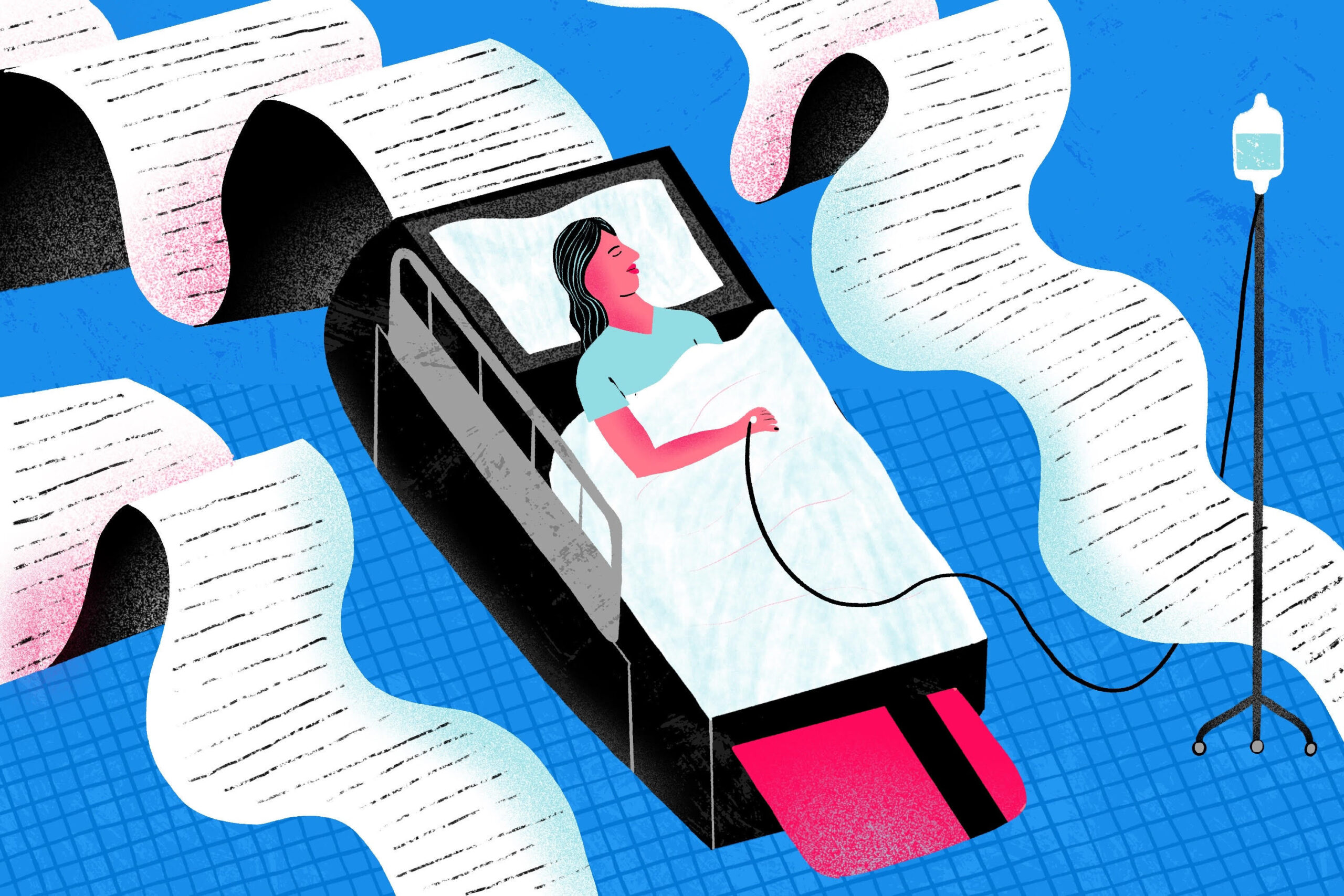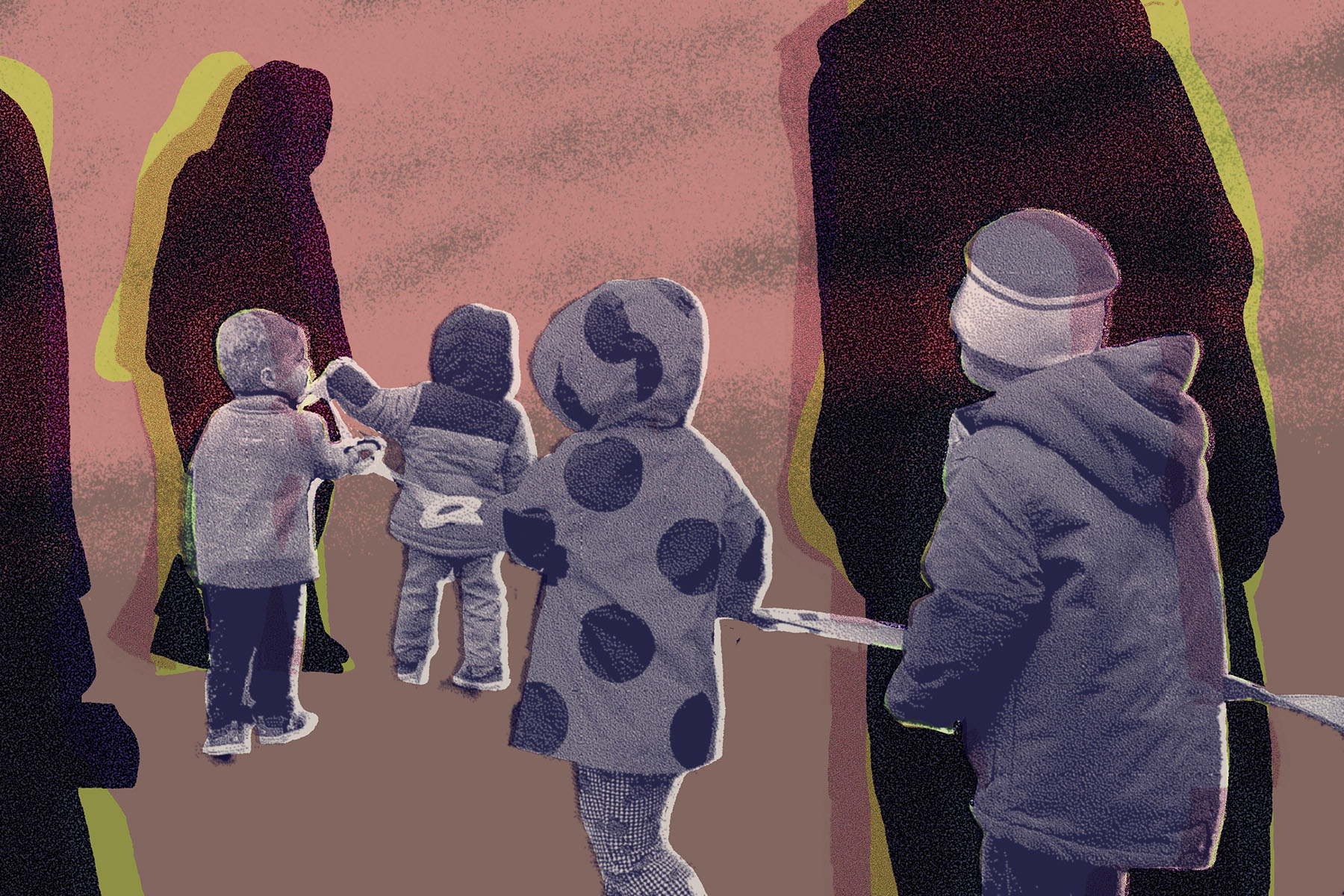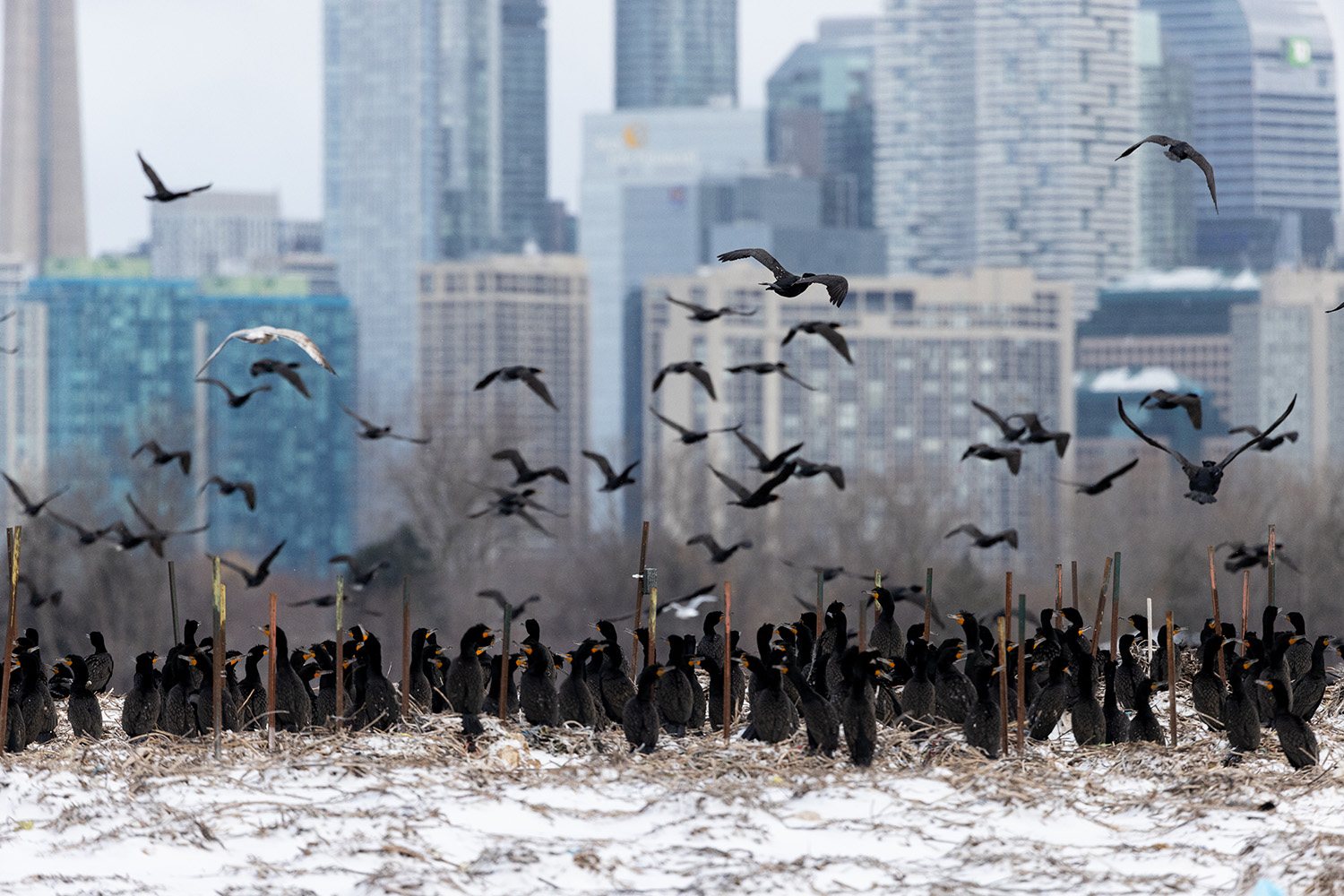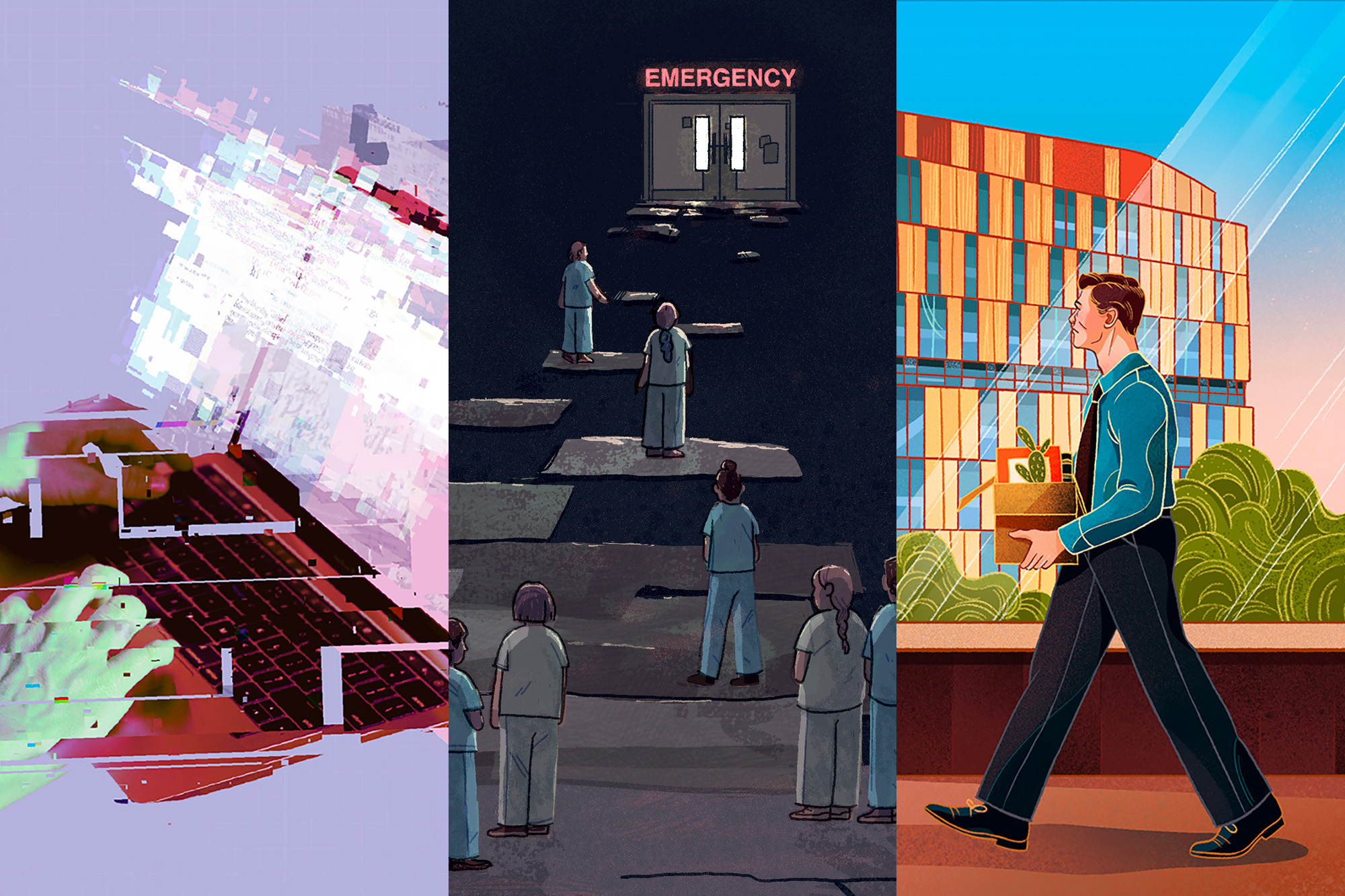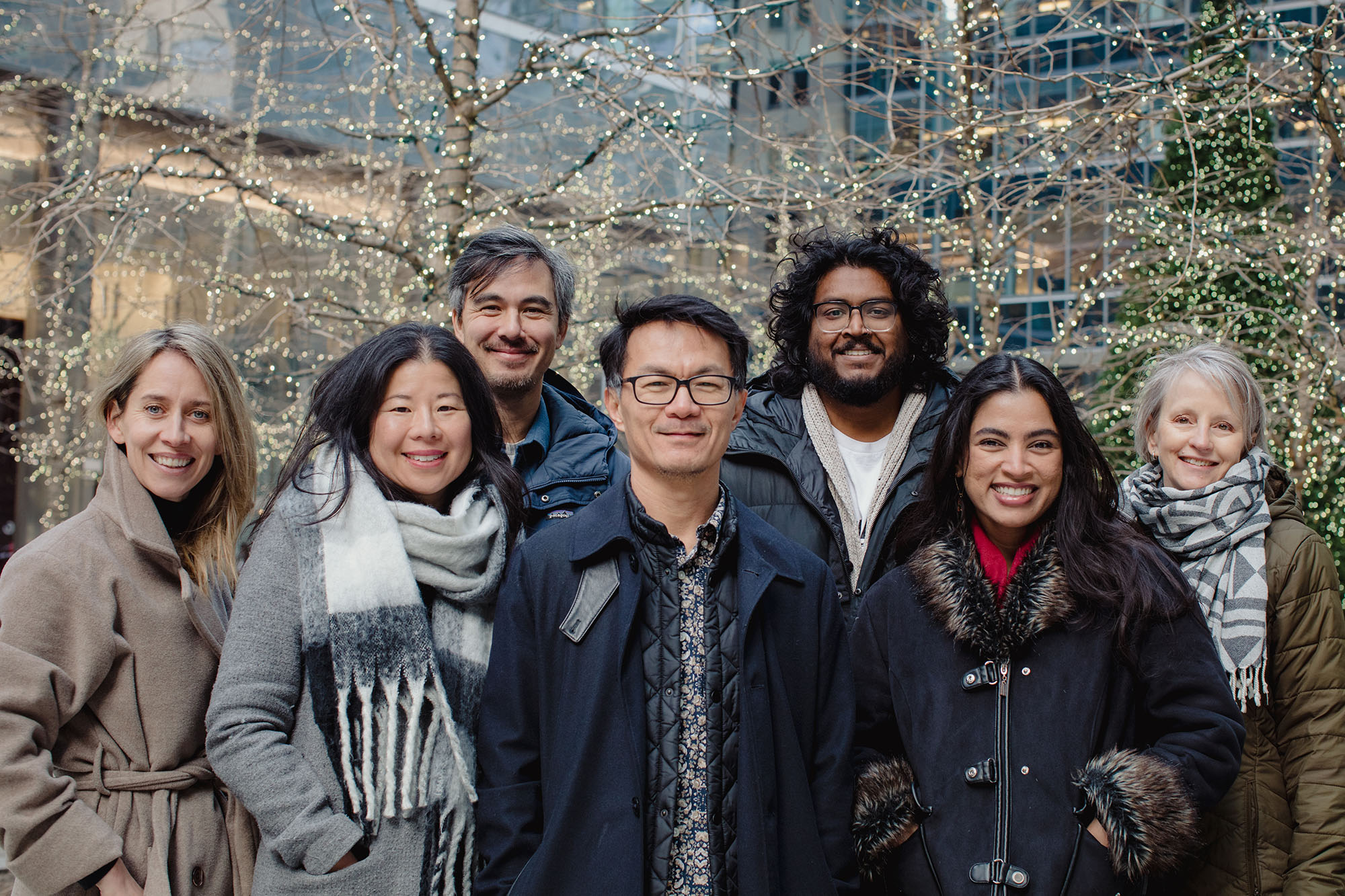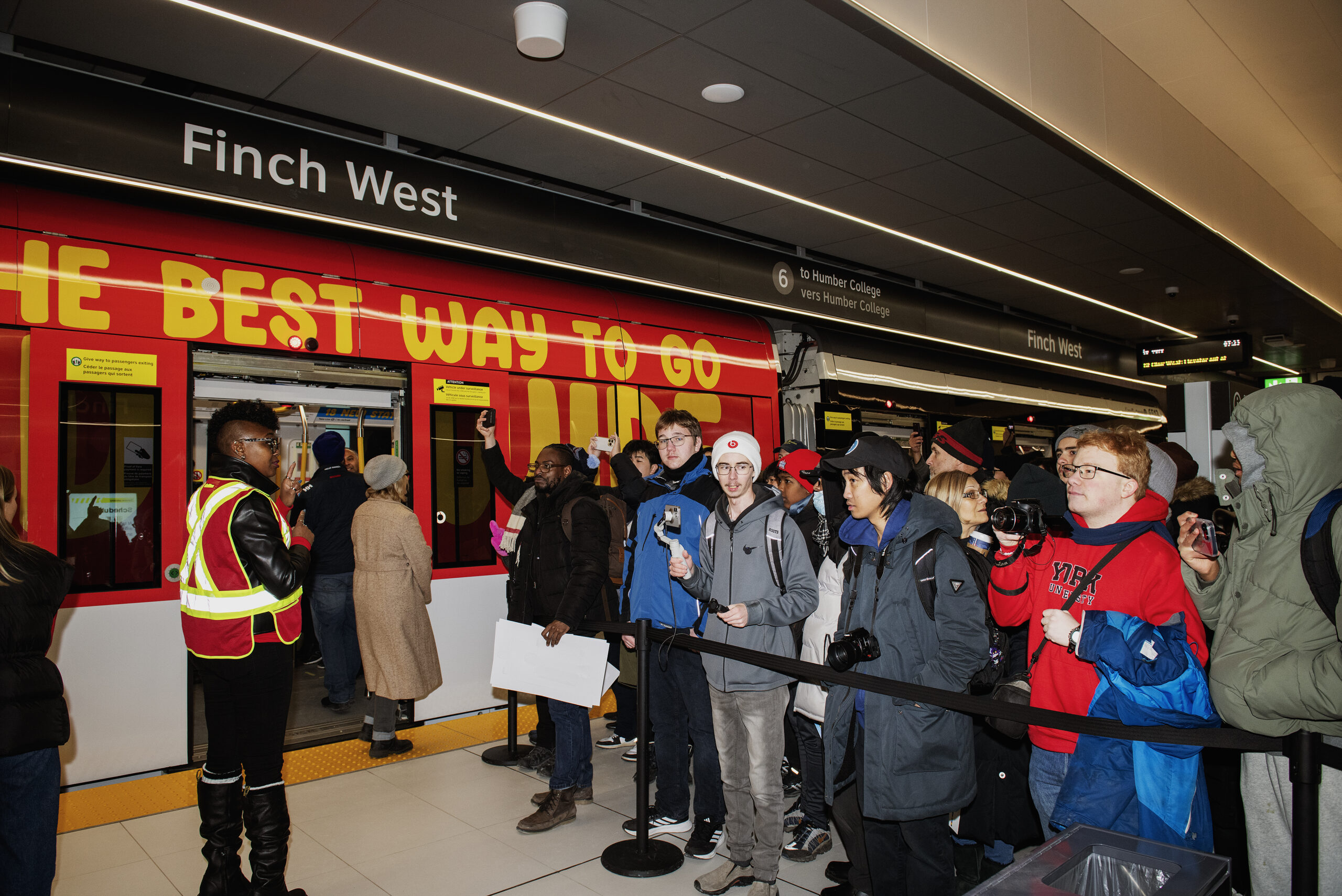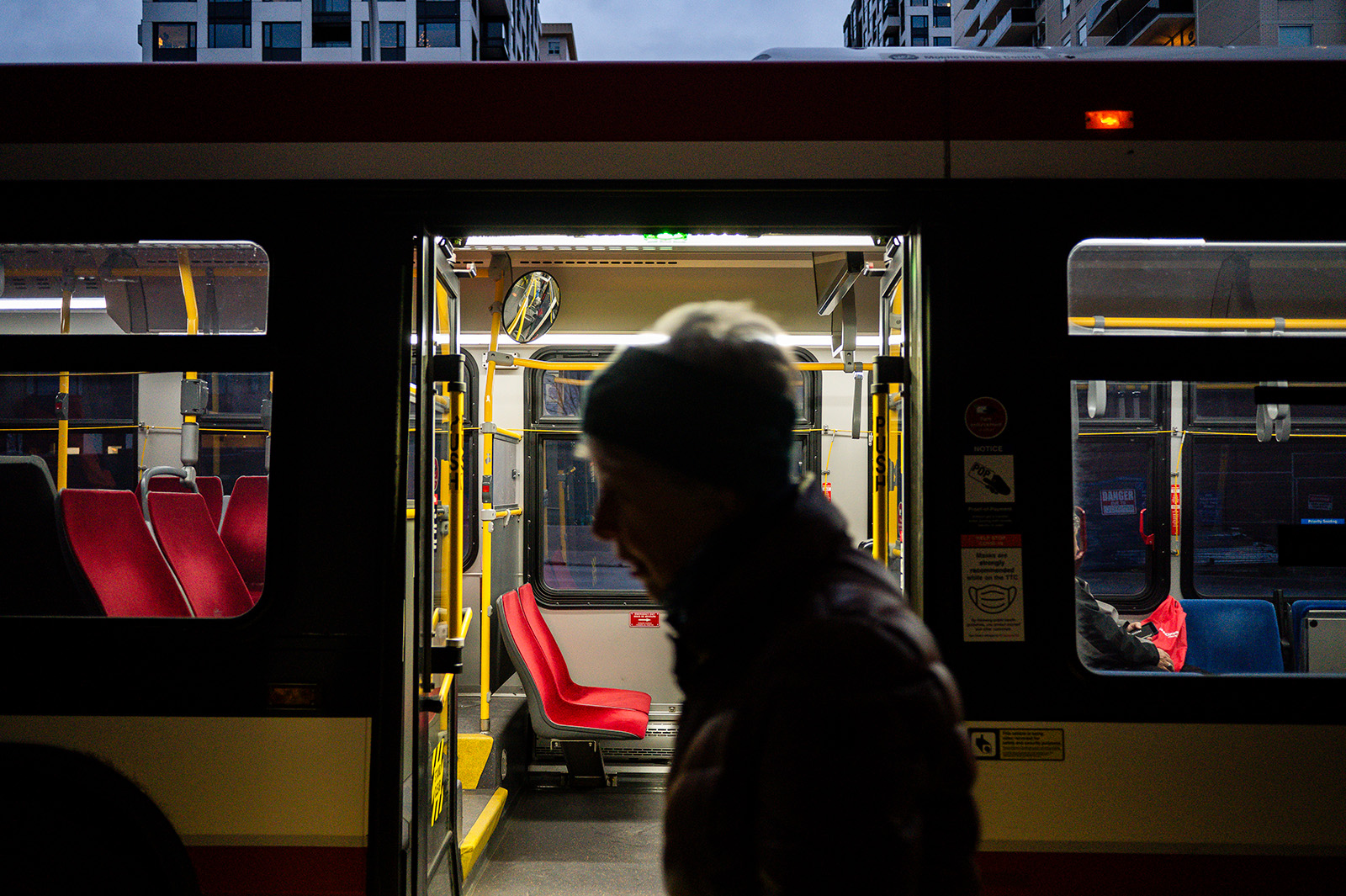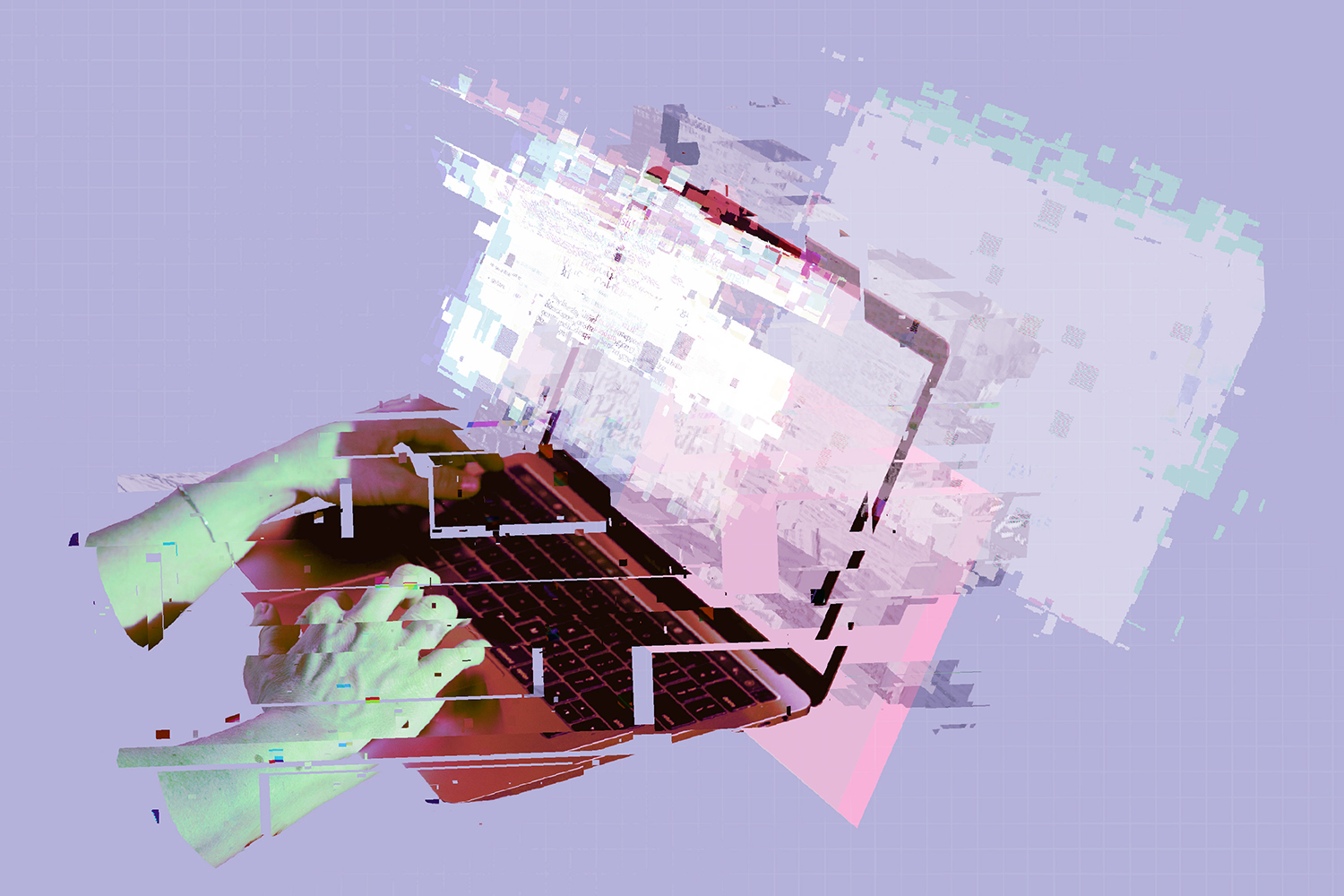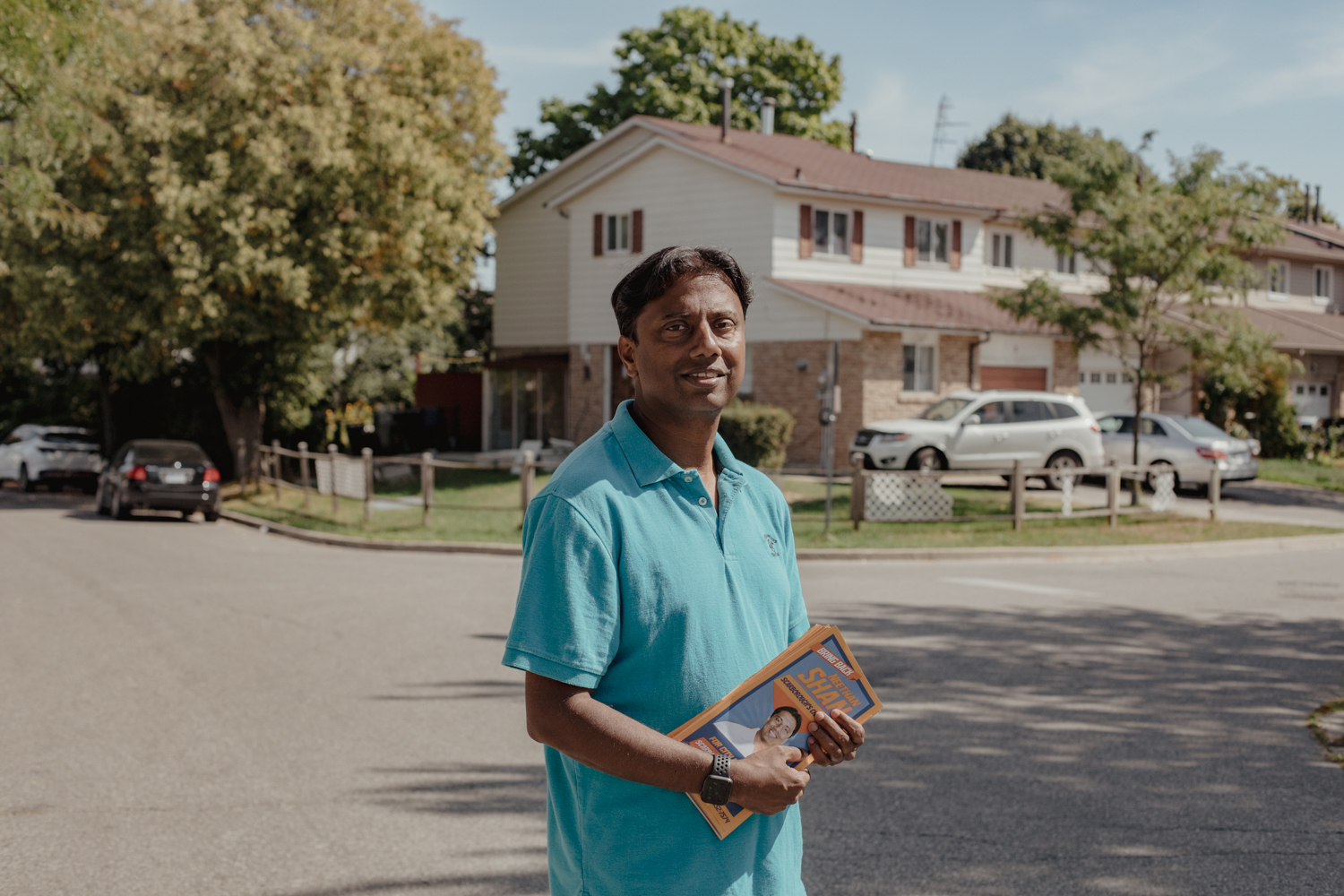
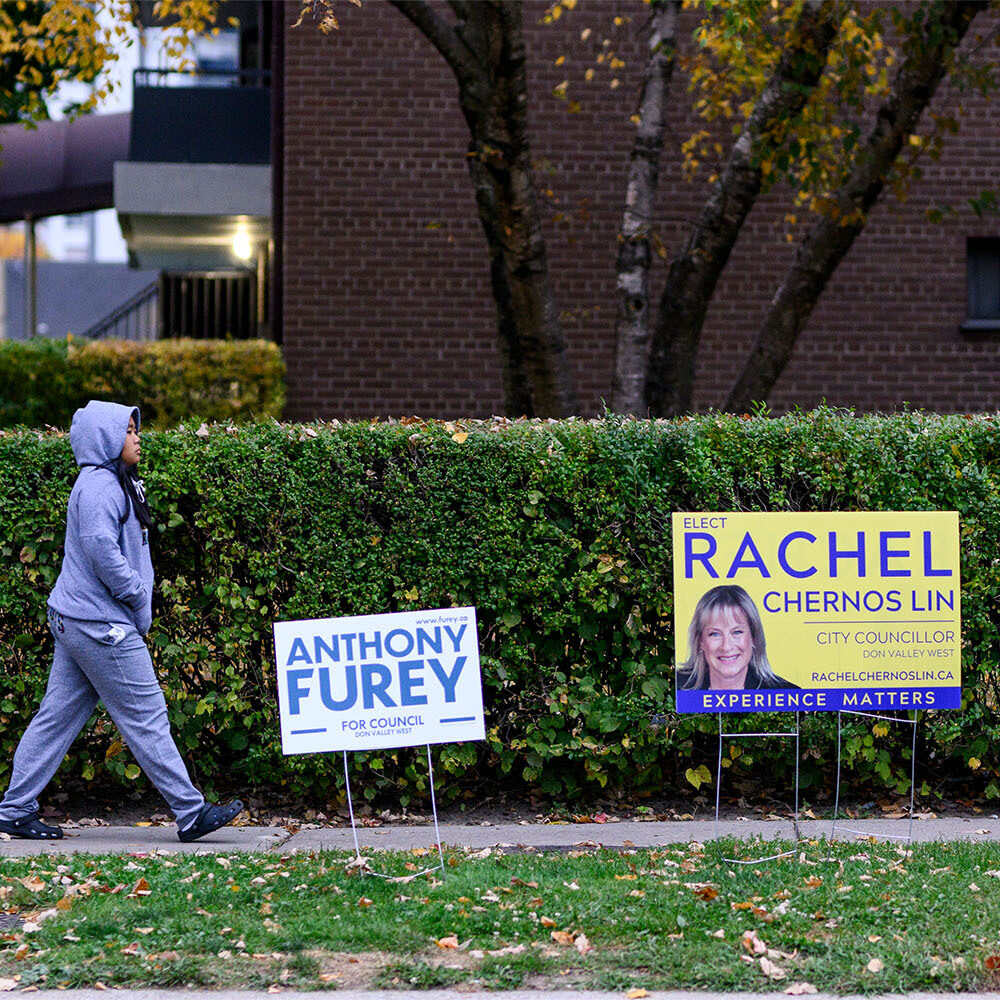
Anthony Furey says partisan divisions are working in his favour as he runs for city councillor in this fall’s Don Valley West by-election.
“People in Don Valley West, at the door, will right away grill me: ‘Are you Liberal? Are you Conservative?’” he said, noting he’ll respond by explaining there are no parties municipally, but he is the more conservative-leaning candidate. “And they say, ‘Good, thumbs up.’ And then they start, you know, ranting about Mr. Trudeau.”
Furey is running in what began as a wide-open race without an incumbent in Don Valley West—a sprawling ward that includes rich areas like the Bridle Path and low-income immigrant neighbourhoods like Thorncliffe Park. But as the Nov. 4 voting day nears, much of the attention has narrowed to two prominent candidates: Furey and Rachel Chernos Lin, a trustee and the chair of the Toronto District School Board (TDSB), who said she is not a member of any political party, but is endorsed by former Liberal premier Kathleen Wynne, Liberal MP Rob Oliphant, and Liberal MPP Stephanie Bowman.
Furey is a former columnist and editor of the Toronto Sun, and a former vice-president of editorial and content for True North, a right-wing media outlet and advocacy organization. As a conservative pundit, he has written several columns and publicly expressed views over the years that critics have said fuel anti-Muslim sentiment and transphobia. When we met earlier this October, however, he had no interest in getting into his columns, saying people can make up their own minds about them: “I’d encourage everybody to read my work”.
Furey has an intense demeanour and a short, stiff, blonde haircut. He agreed to meet with me at his campaign office, a chilly, bare building that was previously a car dealership near Eglinton Avenue and Laird Drive. Though his campaign office is in Don Valley West, he doesn’t live in the ward. He said he knows it well, though, since he grew up at the south end near Leaside Bridge.
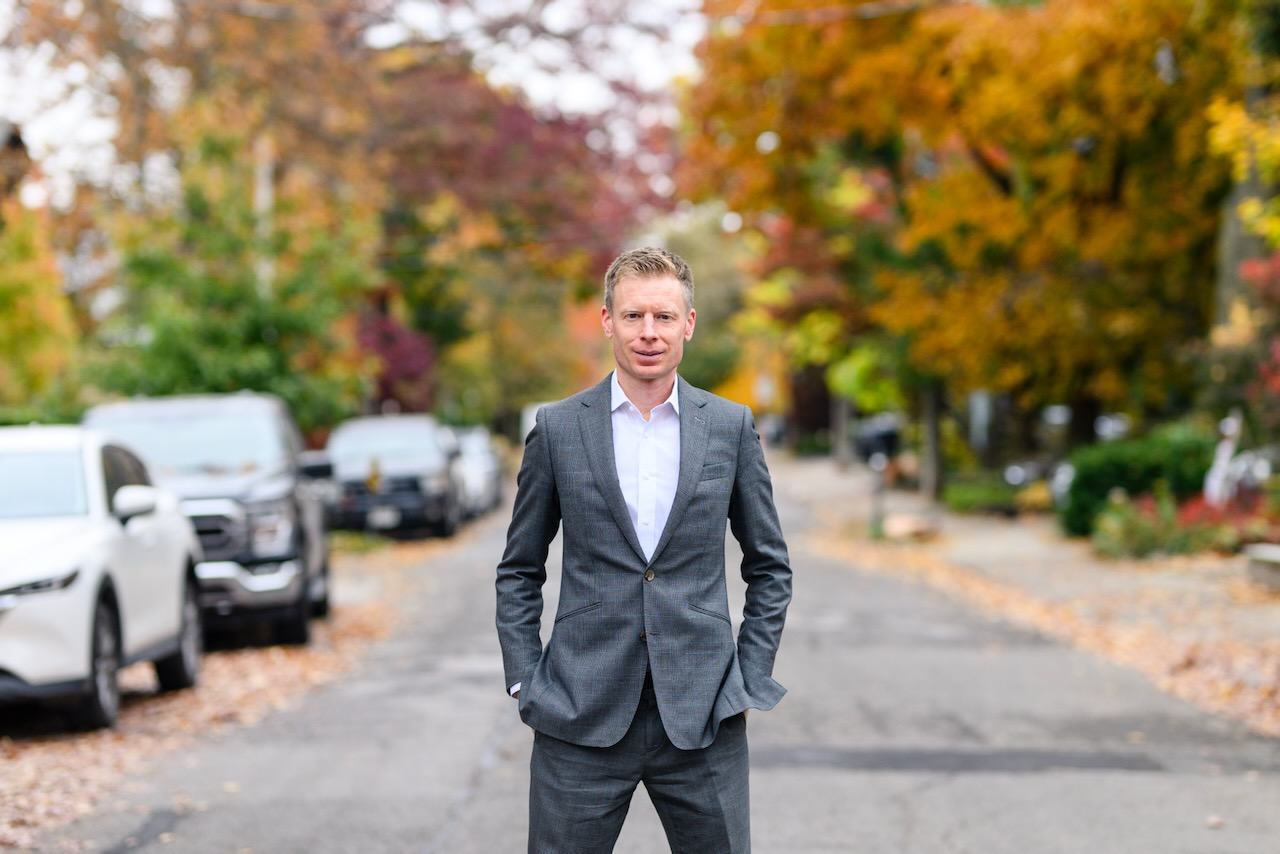
Furey ran for mayor in 2023, and landed in fourth, with roughly five percent of votes. He said he’s been approached about other political opportunities, but is focusing on municipal issues because they’re in most need of fixing right now.
He told me he sees a major political shift occurring. Even though he’s not making a pitch for any federal political party while on the campaign trail, the fact he’s a conservative candidate means residents open up to him about having voted for Liberal Prime Minister Justin Trudeau in the past, but are now leaning Conservative, he said.
“That ends up spilling over into this campaign in a way that happens to benefit me,” he said.
Here Are the Don Valley West By-Election Candidates
The only place to find fact-checked biographies and election platform summaries for all the candidates in Ward 15—Don Valley West's by-election for city councillor on November 4, 2024.
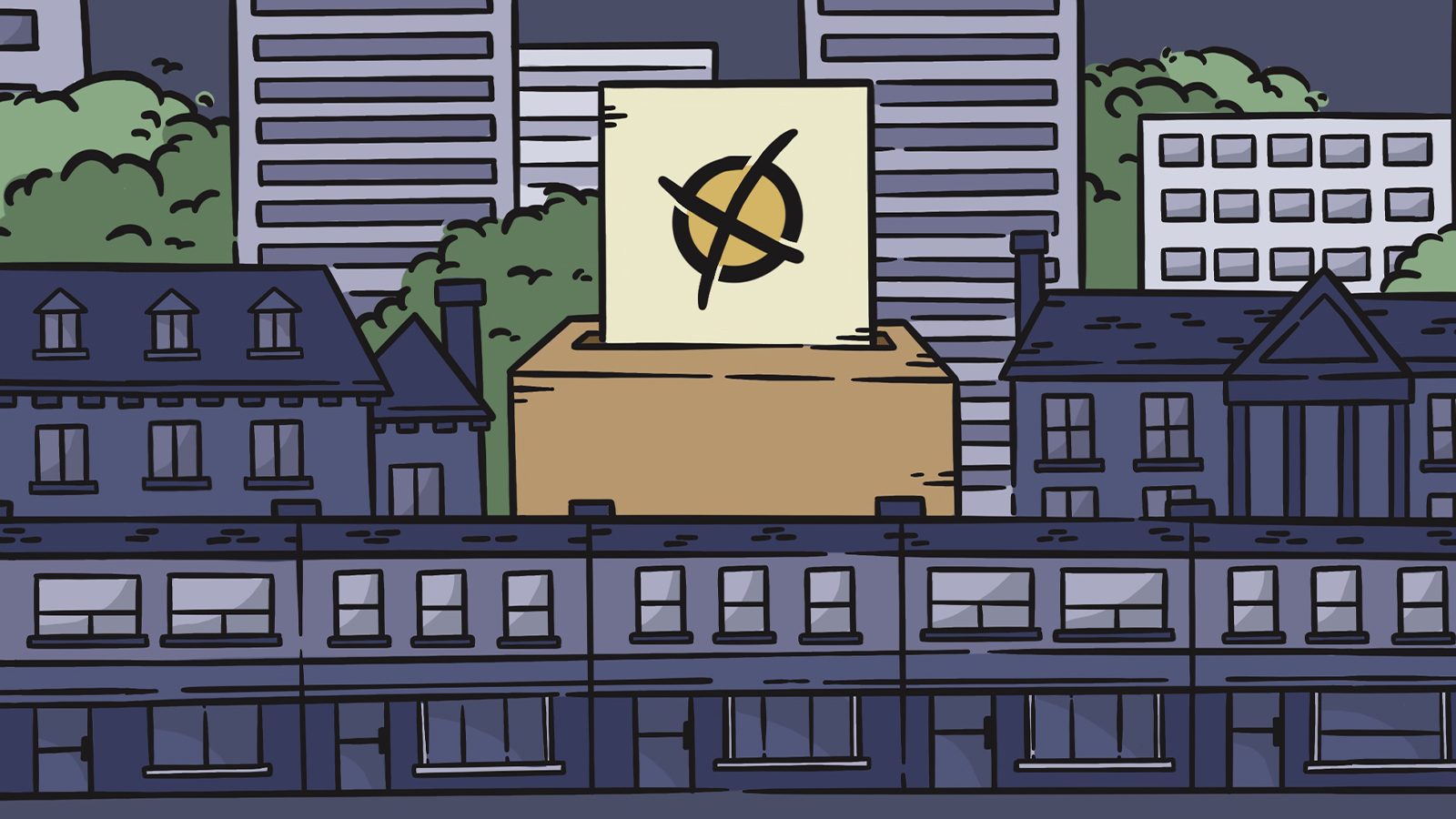
The Ward 15 by-election on Nov. 4 was triggered by the death of long-time councillor Jaye Robinson in May.
Robinson is remembered as a dedicated and approachable community advocate, even by those who didn’t support her. She won handily in the most recent 2022 municipal election, with 74 percent of the votes. However, despite her status as one of the rare municipal politicians who’s a household name among her constituents, Robinson’s 2022 victory could hardly be seen as a sweeping endorsement. At many polling stations, fewer than 20 percent of eligible voters cast their ballots in that race.
Even at the best of times, voter turnout for municipal elections in Toronto is abysmally low, and by-elections tend to barely register on residents’ radar. But the candidates running in the Don Valley West by-election this fall face a particularly steep challenge—to rally constituents to support them at the polls in a sprawling and highly segregated ward.
With more than 101,000 residents, Don Valley West has a larger population than Niagara Falls, Ont., or Victoria, B.C.—all living within a sizable rectangular strip of land smack in the middle of the city. It’s sandwiched between Highway 401 to the north and the Don River to the south, and between Yonge and Leslie Streets.
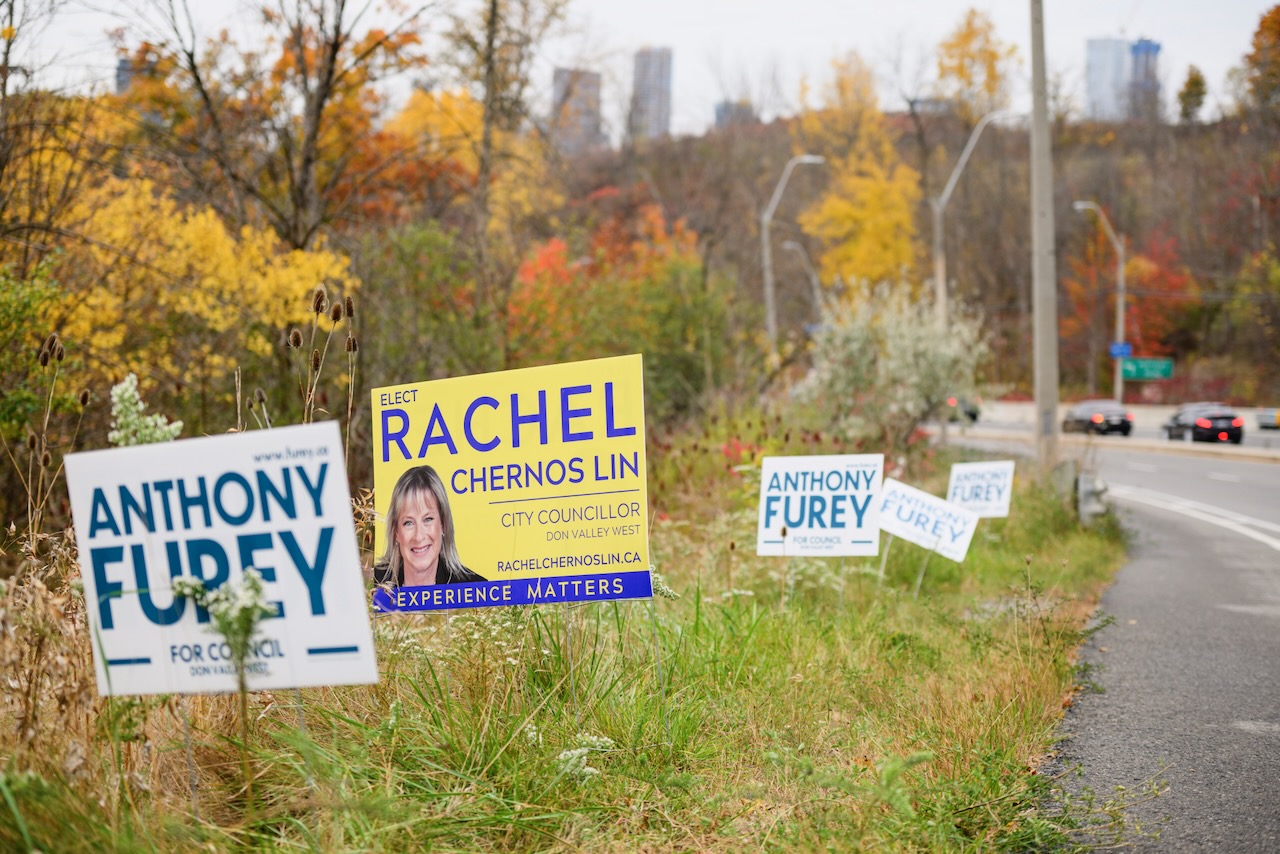
Broadly speaking, 13 percent of the ward is considered low-income, the same as the rest of the city. Zoom in to the neighbourhood level, though, and the disparities of Don Valley West come into sharper focus.
In the Bridle Path-Sunnybrook-York Mills neighbourhood—home to wealthy people like the rapper Drake—the median household income in 2020 was more than two-and-a-half times that of the rest of the city. By contrast, Thorncliffe Park, a cluster of apartment towers next to traffic-heavy Overlea Boulevard, is home to many immigrants born in Pakistan, Philippines, India, and Afghanistan. The median household income for Thorncliffe Park residents was $67,000 in 2020, well short of the city’s $84,000.
“There’s probably more…social, economic differences across this ward than any other,” said Geoff Kettel, who has lived in Leaside, an upper middle-income neighbourhood in the southern part of the ward, for more than 40 years.
Kettel is the co-president of the Leaside Residents Association and co-chair of the Federation of North Toronto Residents’ Associations. Usually, a by-election in this area would be a sleepy affair, he said, but the fact that more residents appear to be paying attention this time around has something to do with who’s running. There’s a diversity of candidates with a wide range of political backgrounds, he said, including Shakhlo Sharipova, a candidate from Thorncliffe Park, and the late councillor Jaye Robinson’s son Sam Robinson. As of publication, there were 14 candidates.
“And of course,” he adds, “there’s one candidate who’s from the far-right, and [who has] a very contentious background.” (Furey does not consider himself a far-right candidate.)
Join the thousands of Torontonians who've signed up for our free newsletter and get award-winning local journalism delivered to your inbox.
"*" indicates required fields
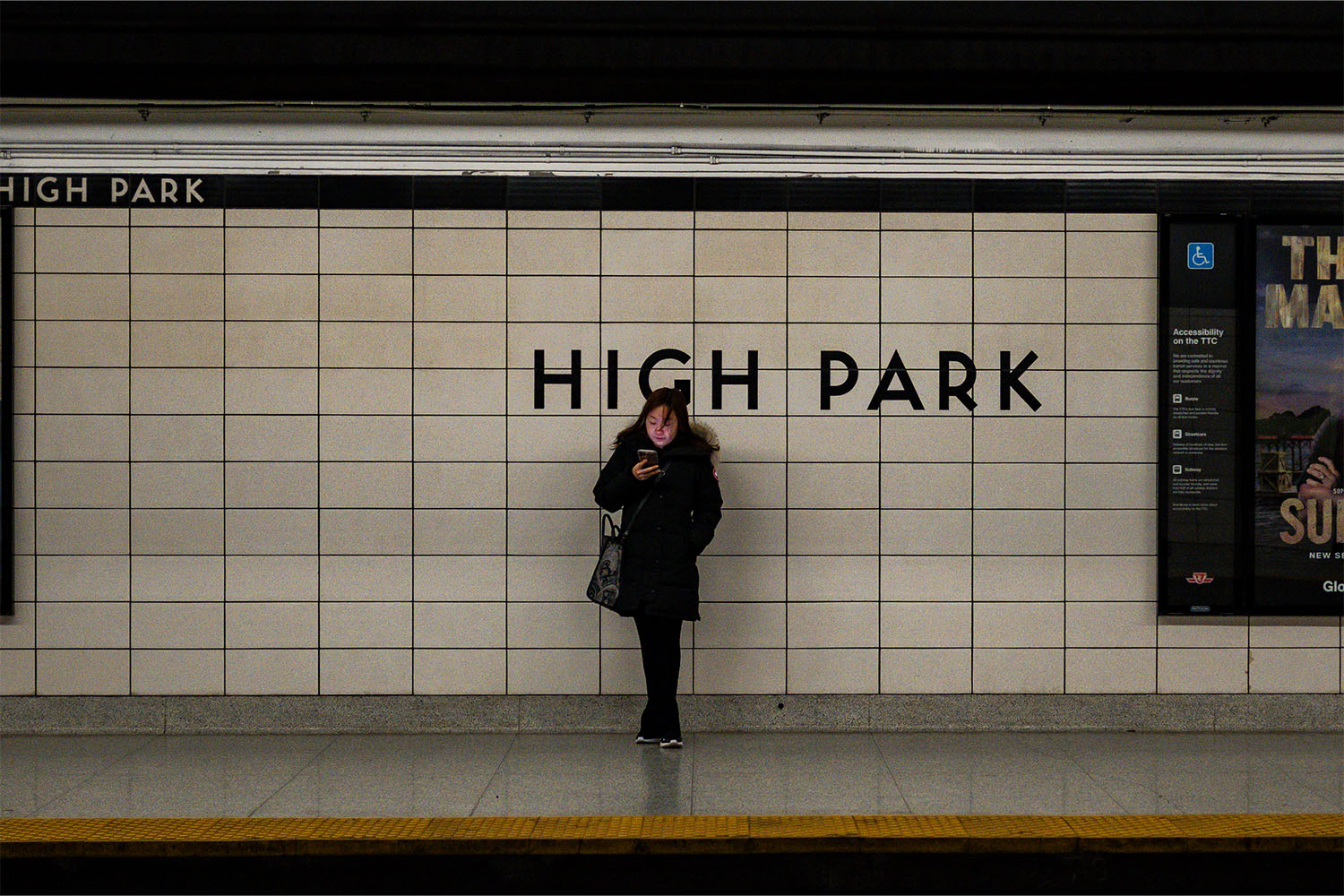
That candidate has united some of his opponents to avoid splitting the vote. Just days ahead of advanced voting on Oct. 26 and 27, two progressive candidates, Evan Sambasivam and Dhruv Jain, pulled out of the race to endorse TDSB chair Rachel Chernos Lin in a bid to thwart Furey. (Because of their late withdrawal, their names will still appear on the ballot.) Their announcement came on the heels of a Liaison Strategies poll that showed Furey in the lead with the support of 38 percent of decided voters, while Chernos Lin was in second with 33 percent. A third of poll respondents were undecided, and all other candidates trailed far behind.
The poll, based on a sample size of fewer than 550 eligible voters, reflects the fact that the outcome of this by-election may rest on a very small number of constituents. And it points to the extent to which Furey’s presence is shaping this by-election, with progressive candidates banding together and efforts from multiple fronts to see that he doesn’t win.
In endorsing Chernos Lin, for example, City Councillor Josh Matlow posted on social media that he believed she’s the only candidate in this race who can defeat Furey.
“He has significant name recognition (which is a big advantage in municipal politics). But behind his name is a deplorable track record of xenophobia, intolerance & unrealistic populist promises,” Matlow wrote on X, formerly Twitter. “I cannot stand by in good conscience and watch Furey become the representative of a community that I love—and that needs a local representative who will fight for everyone in Don Valley West.”
The not-for-profit organization Progress Toronto, which is independent of any campaign, is aiming to distribute some 20,000 “accountability flyers” across the ward to answer the question: “Who really is Anthony Furey?” It cited some of Furey’s controversial past columns, such as one in which he called Islam “the least self-reflecting, least humorous and therefore most troublesome monotheism.” Another, in which he argued that girls wearing the hijab should be allowed to play soccer, said there were “many problems” with a player’s hijab that had nothing to do with the sport: “In its attempts to show its wearer as modest and hence to shield their sexuality, the hijab perversely sexualizes children. It’s also always sad to see a strong-willed young person, particularly a girl, gladly take up symbols of Islam—which means total submission to the will of Allah.” And yet another commentary, published in the right-wing fringe publication The Epoch Times, suggested a TDSB survey that asked about students’ gender amounted to the idea that “something as incredibly serious as life-altering gender reassignment surgery is being brought up casually to young children—promoted even…”
Meanwhile, according to the Toronto Star, former Liberal premier Kathleen Wynne had reached out to three of the candidates—Sambasivam, a policy advisor for the federal Liberal Party, Jain, the director of transit policy for the chair of the TTC and also the former executive assistant of Liberal MPP Bowman, and Chernos Lin—to voice her concerns about a potential Furey win. Although she told the newspaper it would be an “overstatement” to say she had asked any of them to step aside, she confirmed she spoke with them about the importance of uniting behind a single, clear progressive candidate.
On the morning he announced he was suspending his campaign to support Chernos Lin, Sambasivam said it was not an easy decision, but he felt it important to prevent Furey, whom he called a “white nationalist,” from getting a seat on Council.
Throughout his campaign, Sambasivam had been vocal about his criticism of Furey. More than a week earlier, he had received a letter from Furey’s lawyers threatening legal action. It said Sambasivam’s social media posts about their client implicitly or explicitly stated that Furey opposes immigration, is racist, Islamophobic, supports white nationalism, promotes conspiracy theories, and is hateful and divisive. All of which are false, the lawyers wrote, describing Sambasivam’s posts as defamatory and laden with inflammatory language.
Sambasivam dismissed the letter as an intimidation threat.
“I really, really wanted to be the councillor, and I know I would have done a good job,” Sambasivam said shortly after announcing his withdrawal from the race. But he noted he believed Chernos Lin would champion his priorities, including tackling a housing crisis, improving public transit, and advocating for constituents who feel unheard and aggrieved.
“We can end Anthony Furey’s career forever,” he said. “That is what’s at stake.”
In a campaign that he and other candidates had previously emphasized was not about the political left versus right, it was a clear sign the by-election had indeed become all about Furey.
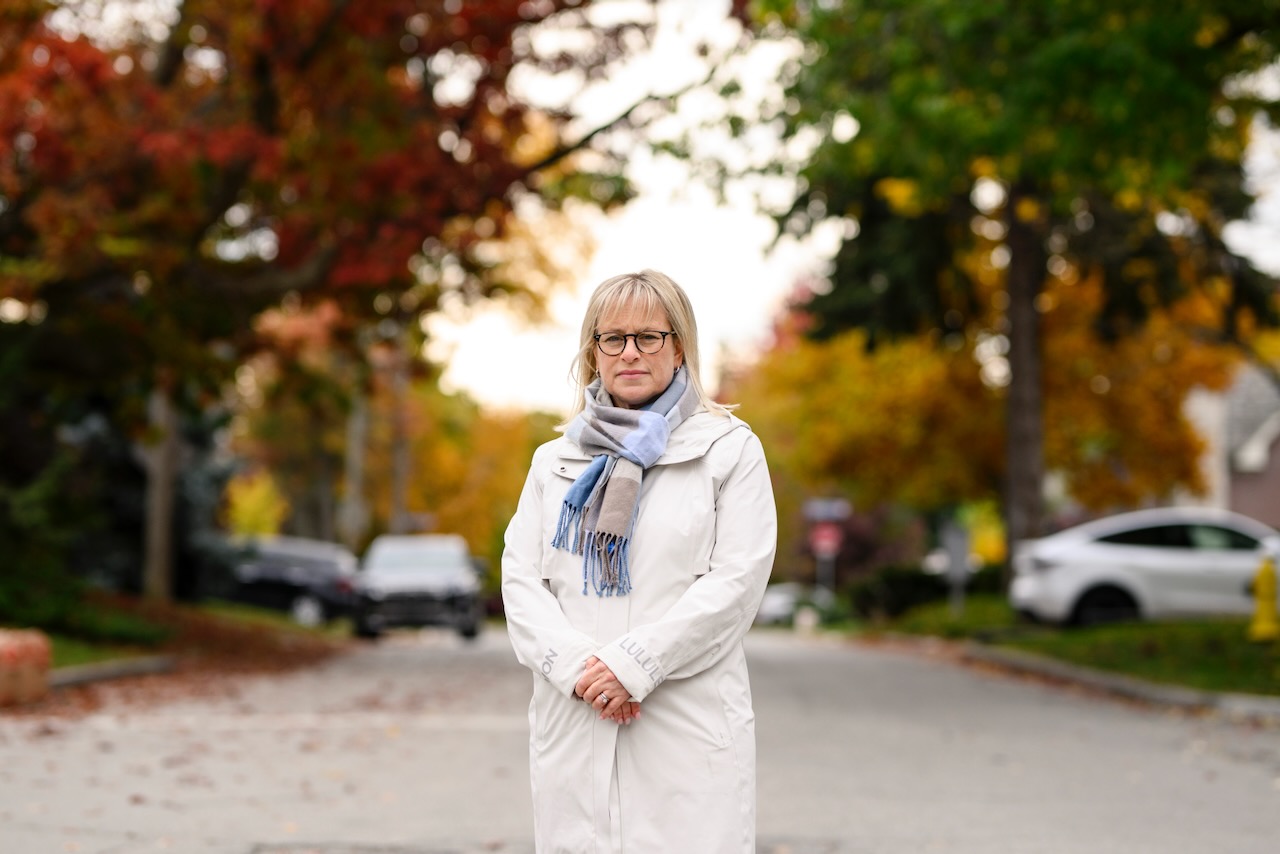
Rachel Chernos Lin has lived in Don Valley West for more than 20 years, and has served as the area’s school board trustee for the past six of them.
Speaking by phone the following week, she was less overtly critical of Furey than some of those endorsing her.
“I think what he presents at the door isn’t the whole package,” she said. “I think when people do their homework, they learn more about what he’s written and his journalism career.”
Chernos Lin said she has read Furey’s columns and material from True North, and that they did not reflect a vision she agrees with. Asked to specify what she opposed, she chose her words carefully.
“I think they aim at targeting people. I think there’s—it’s just a very different vision and approach to solve problems,” she said.
She continued, saying, “I think we can solve problems in constructive ways, or we can try to sow division, and I don’t believe we should be sowing division.”
On a Tuesday night in October, at a town hall on antisemitism at the Beth Tikvah Synagogue just north of the ward, Chernos Lin introduced herself to the audience as a proud member of the Toronto Jewish community. Speaking deliberately and thoughtfully, Chernos Lin, a petite blonde with a calm, measured voice, told the crowd she shared their concerns about rising antisemitism in the city, amid protests over Israel’s military response to the Oct. 7, 2023 Hamas attacks. Over the past year, the community had seen a number of high-profile incidents, including the targeted arson of a Jewish-owned deli, shots fired on two occasions at a Jewish school, and repeated vandalism of an orthodox synagogue in Don Valley West. At City Council, one of the things that can be done to ensure everyone, including Jewish families, feels safe is to ensure sustained funding for police budgets, Chernos Lin said.
“I can tell you I’m not interested in defunding the police. I don’t believe this is the time to be cutting police budgets,” she said. “I think we have a lot of crime issues, including antisemitism and other things.”
She emphasized she has a reputation for being a “bridge-builder,” having worked with various leaders in the city. She also emphasized her experience managing the TDSB’s budget, and the relationships she’s developed across Don Valley West through regular coffee mornings she’s held with the public.
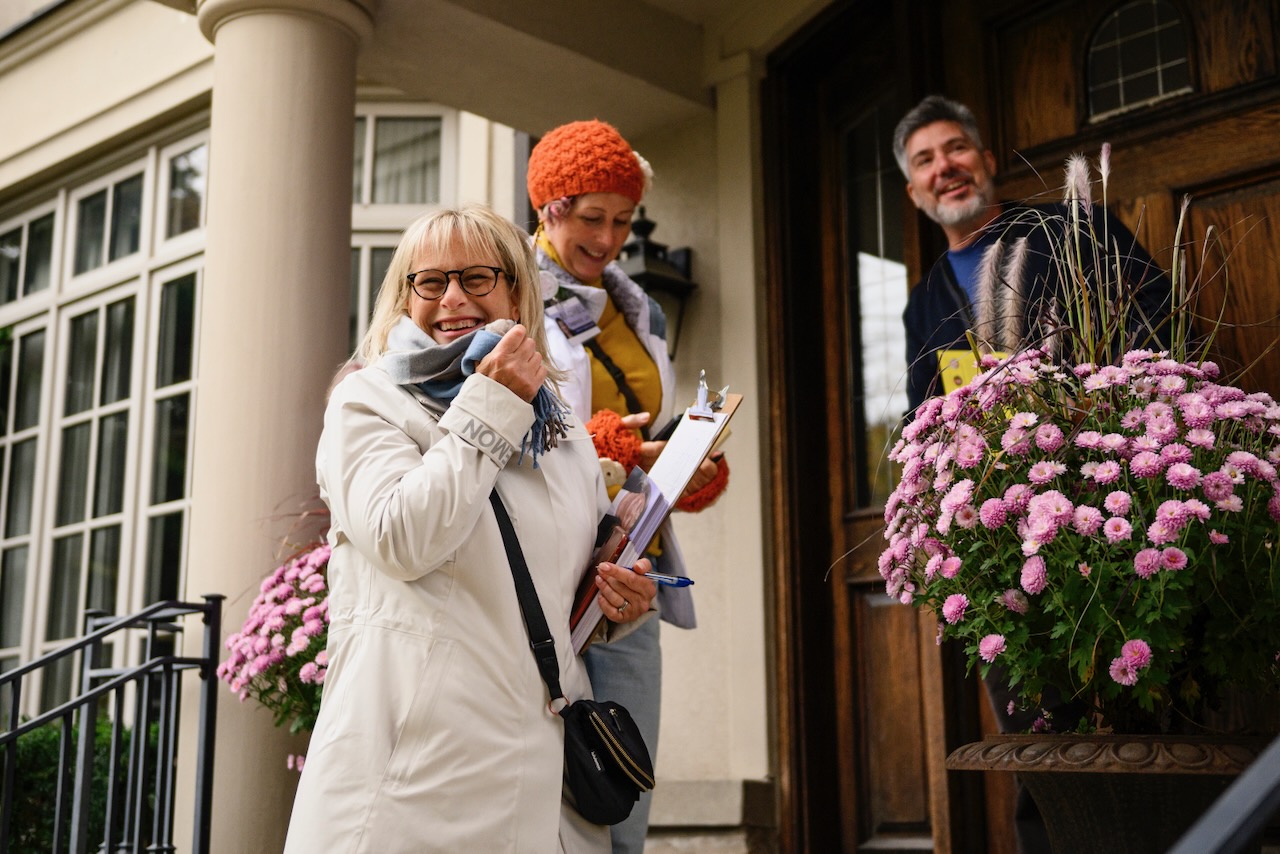
At that town hall, Furey, with whom she shared the bimah, or platform, received hearty applause and nods of support from the crowd, especially when he criticized the TDSB for a lack of leadership—not only when it comes to antisemitism, but other issues, like declining education standards, teachers leaving the profession because of violence in schools, and what he described as increasing politicization in the classroom. He added that he was “100 percent” behind supporting everyone in the diverse city of Toronto, “but as I feel passionately about, many parents of Don Valley West feel passionately about, and as the gay volunteers in my campaign feel passionately about, we don’t need to be pushing all this transgender stuff on 8-year-olds, as happened to my son.” Ontario’s sexual health curriculum doesn’t specifically address gender identity and gender expression until grade eight. However, the TDSB’s website states it’s committed to creating learning environments where people of all gender identities and gender expressions feel empowered and supported. And its guidelines state transgender and gender non-conforming students have the right to be who they are openly and to be addressed by their preferred name and pronouns.
That evening, the animosity between Furey and Sambasivam, who was seated next to him, was on full display. Sambasivam seized opportunities to criticize Furey’s track record, reminding the audience that Furey once wrote a column expressing sympathy for the Freedom Convoy in Ottawa, where some protesters displayed swastikas. That remark drew boos from the crowd, and a call from one audience member to stick to the question. At one point while Sambasivam spoke, Furey turned his head away from him.
During our phone conversation, Chernos Lin expressed understanding for the support for Furey.
“I think he does tap into voters who want to see value for money, as do I,” she said.
To characterize this by-election as a left versus right race is a “simplistic overview,” she said.
“I don’t think that I fit into a left versus right category.”
Nevertheless, she said the results of the Liaison Strategies poll made many realize this was a two-horse race, and she was the strongest candidate to beat Furey. Some of the ideas Sambasivam and Jain had been championing, like focusing on affordable housing and building condos and apartments that can accommodate families, are consistent with hers, she said.
Chernos Lin said there were a few things that set her apart from her main opponent. First, she said, she lives in the ward. Second, she said, “I have experience and a proven track record of getting things done.”
And third, she said, “I believe in an optimistic vision. I tackle problems from an optimistic lens and not a divisive lens.”
That latter point is, ironically, not so different from Furey’s stated aim.
In his campaign office, Furey said he’s focused on running a positive campaign, and bringing “common sense” solutions to City Hall. Among his top priorities, he said, are tackling traffic congestion and crime, including car thefts and home invasions. He recounted that one constituent had told him her child couldn’t sleep for a couple nights out of fear of “the bad men who had come there.”
Furey believes part of the reason the city is experiencing a “public safety crisis” is that the police lack resources and personnel, explaining even though Toronto’s population has grown, there are hundreds of fewer officers now than a decade ago. This year, City Council approved a $20-million increase to the police budget, which already uses more taxpayer dollars than any other City Hall line item.
When asked about his thoughts on homelessness, he said it’s a big issue and there are a lot of faith groups working to help people. He didn’t mention any proposed solutions if he’s elected, but said he was a “big fan” of civil society groups tackling the problem.
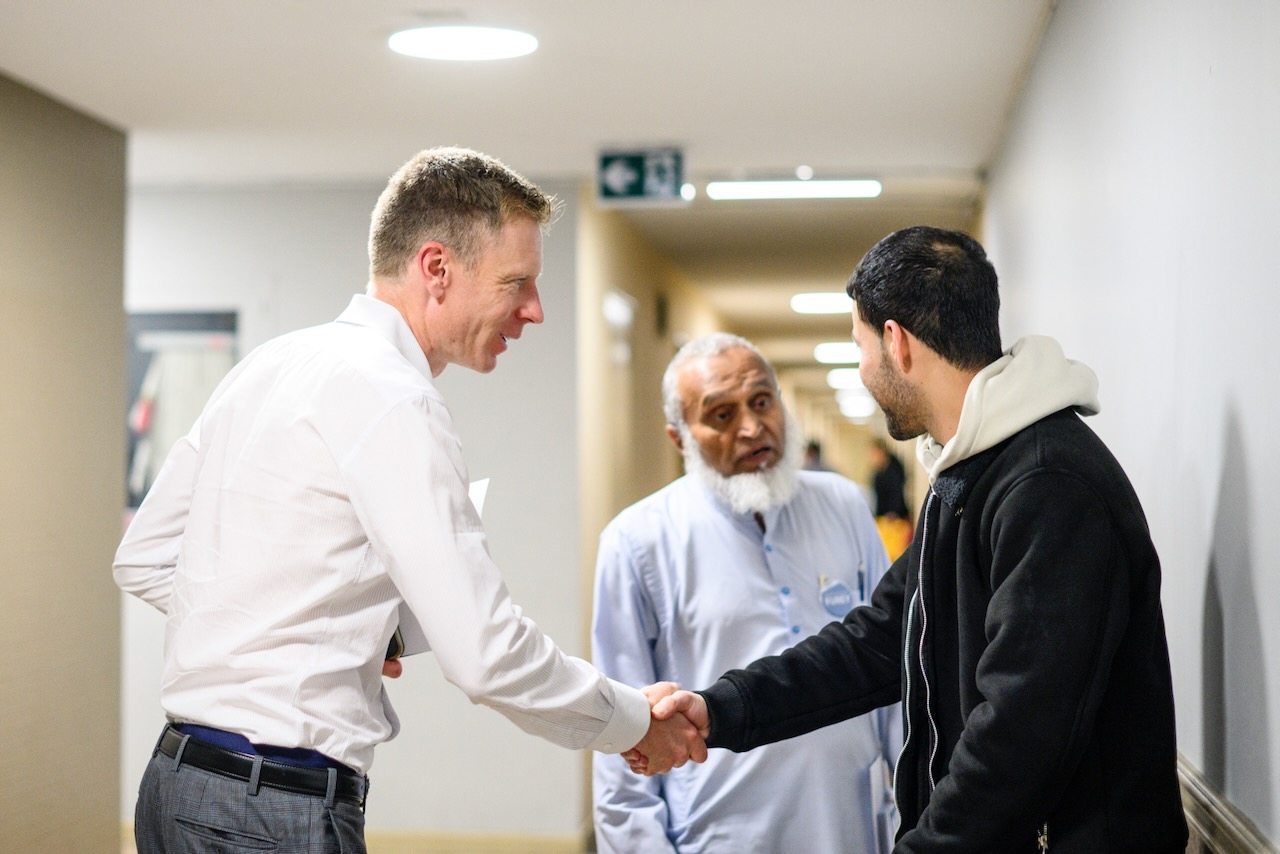
Furey was prickly when my questions turned from policy ideas to the reasons his opponents and critics were working to defeat him. Yet the topic is impossible to avoid bringing up; his very presence in the race overshadows debate and media attention on policy ideas. By uniting behind Chernos Lin, Sambasivam and Jain’s detailed platforms collapse into a single message—to beat Furey.
“If you want to editorialize in the article, and go and talk about other things, you’re fully within your right to do that,” he told me.
He declined to discuss why he had his lawyers send the letter to Sambasivam. “Well, I guess if you’ve seen the letter, it’s in the letter,” he said simply.
His critics, he said, are engaging in “character assassination” and “smear campaigns.”
At Progress Toronto, executive director Saman Tabasinejad rejected the idea that her organization’s accountability flyers were a smear campaign. “Is it a smear campaign to share with voters the actual quotes of someone who’s running for office and wants to represent them? Or is that just the truth?” she said.
If Furey has actually changed his views since writing his contentious columns, Tabasinejad said, then the public deserves to know. But until now, she had not heard him apologize to the Muslim community or to Muslim women, whom she said he has disparaged.
And it appears unlikely she will any time soon. Furey was curt when I asked him if he stands by the columns he’s written.
“I’m very proud to have had a 15-year career in media tackling the issues that matter to the residents and showing that I want to make Canada and Toronto a better place for the benefit of all,” he said. “If everyone else wants to spend all their time talking about Anthony Furey, good for them. I don’t think it helps their campaign. I don’t think it helps them win votes.”
Correction: An earlier version of this story included a sentence about low turnout in a polling station on Teddington Park Avenue in 2022. That has been removed as the polling station was located in a retirement home with few eligible voters.
